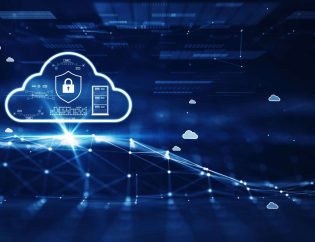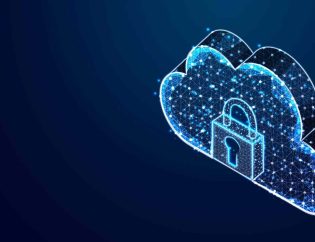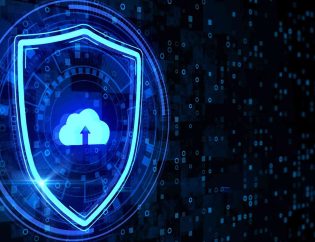
Table of Contents
Introduction
Future Trends in Cloud Security
Quantum Computing’s Impact on Cloud Security
Zero Trust Architecture in Cloud Security
The Impact of Edge Computing on Cloud Security
Cloud Security Automation and DevSecOps
How Blockchain Helps in Cloud Security
Future Challenges and How to Overcome Them
Cloud Security Innovations: A Comparative Table
Conclusion
FAQs
Introduction
Cloud security is changing quickly as technology improves and cyber threats grow. More businesses are using the cloud, so keeping data safe is very important. New solutions like AI, zero trust security and quantum computing are helping to protect cloud systems and keep them safe from attacks.
Future Trends in Cloud Security
Cloud security is no longer just about basic firewalls and passwords. New technologies are making cloud systems safer and smarter. Some key trends shaping the future of cloud security include:
- AI-Powered Threat Detection – Artificial intelligence helps detect cyber threats by analyzing large amounts of data in real-time, allowing faster responses to attacks.
- Decentralized Identity Management – Instead of relying on one central system, decentralized identity makes user authentication more secure and reduces hacking risks.
- Confidential Computing – This technology ensures that sensitive data stays encrypted even while being processed, adding an extra layer of security.
- Cloud-Native Security – Security tools built directly for the cloud work smoothly with DevOps processes, improving overall protection.
Quantum Computing’s Impact on Cloud Security
As technology advances, quantum computing is set to change the future of cloud security. While it offers powerful computing capabilities, it also poses new security challenges. Organizations must prepare for both the risks and opportunities that quantum computing brings to cloud security.
Key ways quantum computing will impact cloud security:
- Stronger Encryption – Quantum encryption will create nearly unbreakable security keys, protecting sensitive data.
- Breaking Traditional Cryptography – Current encryption methods may become weak against quantum attacks, requiring new security strategies.
- Faster Threat Detection – Quantum computing can process vast amounts of data instantly, improving cybersecurity responses.
- Post-Quantum Security – Companies are already working on encryption methods that can resist quantum-based attacks.
Zero Trust Architecture in Cloud Security
Zero Trust is becoming an important way to protect cloud systems. Unlike old security methods that trust users inside the network, Zero Trust follows the rule: “never trust, always verify.” This means every user and device must prove their identity every time they try to access data.
Here’s how Zero Trust makes cloud security stronger:
- Strict Access Control – Only approved users can access certain files or apps, keeping data safe.
- Multi-Factor Authentication (MFA) – Users need to verify their identity using extra steps like passwords, fingerprints, or security codes.
- Cloud Network Segmentation – The cloud is divided into smaller parts, stopping hackers from moving freely if they get in.
- Stops Attack Spread – If a hacker breaks into one part of the system, they can’t easily access the rest.
The Impact of Edge Computing on Cloud Security
Edge computing is changing how cloud security works by processing data closer to its source instead of relying only on central cloud servers. This approach reduces delays, improves security and makes cloud systems more efficient. As more devices connect to the cloud, edge computing plays a big role in keeping data safe.
Here’s how edge computing improves cloud security:
- Smaller Attack Surface – Since data is processed locally, there are fewer chances for hackers to attack central cloud servers.
- Faster Threat Detection – Security checks happen closer to where data is created, allowing quick response to cyber threats.
- Better Privacy Protection – Sensitive data can be stored and processed on local devices instead of being sent to distant cloud servers, reducing privacy risks.
- Stronger System Resilience – With less dependence on a single cloud server, the system remains secure even if one part is attacked.
Cloud Security Automation and DevSecOps
Cloud security automation and DevSecOps (Development, Security and Operations) are transforming the future of cloud security by making security a built-in part of software development. Instead of adding security at the end, DevSecOps ensures that security is integrated from the start, making cloud applications safer and more reliable.
- Early Vulnerability Detection – Security checks run automatically throughout the development process, finding weaknesses before attackers can exploit them.
- Automated Compliance Checks – Systems are continuously monitored to meet security regulations, reducing the risk of compliance violations.
- Infrastructure as Code (IaC) – Cloud environments are built using code, ensuring consistent, scalable and secure deployments.
- Faster Incident Response – Threats are detected and addressed automatically using AI-powered security intelligence.
By integrating security at every stage, DevSecOps helps businesses build resilient, secure and compliant cloud environments that can withstand modern cyber threats.
How Blockchain Helps in Cloud Security
Blockchain is making cloud security stronger by using a decentralized and unchangeable way to protect data. Unlike old security methods that depend on one central system, blockchain spreads security across a network, making it harder for hackers to attack.
Here’s how blockchain improves cloud security:
- Better Identity Protection – Instead of relying on one server, blockchain checks identities across many systems, making it harder for hackers to steal data.
- Data Cannot Be Changed – Once information is saved on a blockchain, no one can change or delete it, keeping records safe.
- Safe Data Sharing – Blockchain allows secure data exchange while keeping privacy protected.
- Automatic Security Rules – Smart contracts follow preset security rules, controlling access and reducing human errors.
Future Challenges and How to Overcome Them
Even with new technologies improving cloud security, some challenges still remain. Companies must stay prepared to protect their data and systems from growing cyber threats. Here are some key challenges and how to tackle them:
- Data Breaches – Hackers try to steal sensitive information. To prevent this, businesses should use end-to-end encryption, ensuring that data is secure during storage and transfer.
- Compliance Issues – Many companies struggle to meet security regulations like GDPR and CCPA. Following these rules and regularly updating security policies help businesses stay compliant.
- Insider Threats – Sometimes, employees or former workers can misuse access to sensitive data. Companies should use strict access controls, multi-factor authentication and continuous monitoring to reduce this risk.
- Advanced Cyber Attacks – Hackers are using AI-driven methods to breach cloud security. To stay protected, organizations should adopt AI-based security tools that detect and respond to threats in real time.
By adopting strong security measures and staying updated with the latest cloud security future trends, businesses can create a safer cloud environment for their data and applications.
Cloud Security Innovations: A Comparative Table
| Innovation | Description | Benefits |
| AI & ML | Intelligent threat detection & response | Automated defense, real-time insights |
| Zero Trust | No implicit trust, strict access control | Enhanced security, reduced risks |
| Confidential Computing | Encrypts data in use | Stronger data protection |
| Quantum Cryptography | Future-proof encryption | Resilience against quantum attacks |
| Blockchain | Decentralized security & transparency | Tamper-proof, secure identity management |
The future of cloud security is bright with AI and automation. 🤖☁️ Stay ahead of evolving threats and ensure your data stays protected in the cloud. #CloudSecurity #TechTrends
— Hyper Secure (@HyperSecure) February 27, 2025
Customer Testimonial
“Since adopting a zero-trust cloud strategy, our security posture has significantly improved. AI-powered threat detection has helped us prevent multiple attacks. The future of cloud security is promising!” – Alex J., CTO at SecureTech
Conclusion
The future of cloud security is shaped by AI, blockchain, zero trust and quantum computing. To stay safe, businesses need to adopt these new technologies and improve their security strategies.
Hyper Secure helps companies protect their cloud systems, data and applications with advanced security solutions. From threat detection to data encryption, Hyper Secure provides reliable protection against cyber threats, ensuring a safer cloud environment for businesses.
FAQs
What is the future of cloud security?
The future includes AI-driven security, zero-trust frameworks, blockchain authentication and quantum-resistant encryption for stronger protection.
How does AI improve cloud protection?
AI helps detect threats in real-time, automates security responses and enhances authentication to prevent cyberattacks.
Why is Zero Trust important in cloud environments?
Zero Trust enforces strict access controls, requiring verification for every user and device to reduce unauthorized access risks.
Will quantum computing impact data security?
Yes, quantum computing could break current encryption methods, making quantum-resistant cryptography essential for future security.
How can businesses strengthen their cloud defenses?
Companies should use AI-based security tools, implement Zero Trust, adopt blockchain solutions and follow compliance regulations.
What are the latest trends in securing cloud systems?
Trends include confidential computing, decentralized identity management, AI-driven threat detection and automated compliance monitoring.








